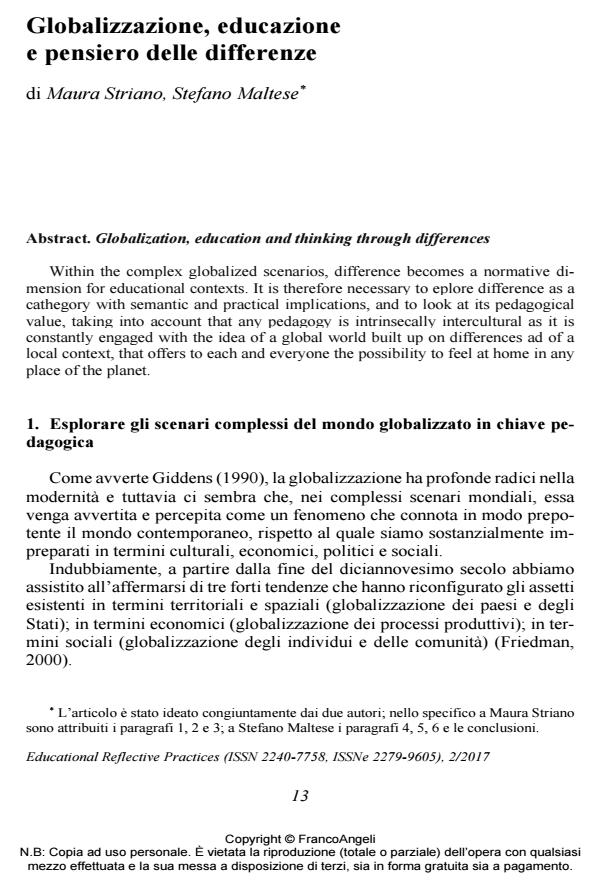Globalization, education and thinking through differences
Journal title EDUCATIONAL REFLECTIVE PRACTICES
Author/s Maura Striano, Stefano Maltese
Publishing Year 2018 Issue 2017/2
Language Italian Pages 16 P. 13-28 File size 206 KB
DOI 10.3280/ERP2017-002002
DOI is like a bar code for intellectual property: to have more infomation
click here
Below, you can see the article first page
If you want to buy this article in PDF format, you can do it, following the instructions to buy download credits

FrancoAngeli is member of Publishers International Linking Association, Inc (PILA), a not-for-profit association which run the CrossRef service enabling links to and from online scholarly content.
Within the complex globalized scenarios, difference becomes a normative di-mension for educational contexts. It is therefore necessary to eplore difference as a cathegory with semantic and practical implications, and to look at its pedagogical value, taking into account that any pedagogy is intrinsecally intercultural as it is constantly engaged with the idea of a global world built up on differences ad of a local context, that offers to each and everyone the possibility to feel at home in any place of the planet
Maura Striano, Stefano Maltese, Globalizzazione, educazione e pensiero delle differenze in "EDUCATIONAL REFLECTIVE PRACTICES" 2/2017, pp 13-28, DOI: 10.3280/ERP2017-002002